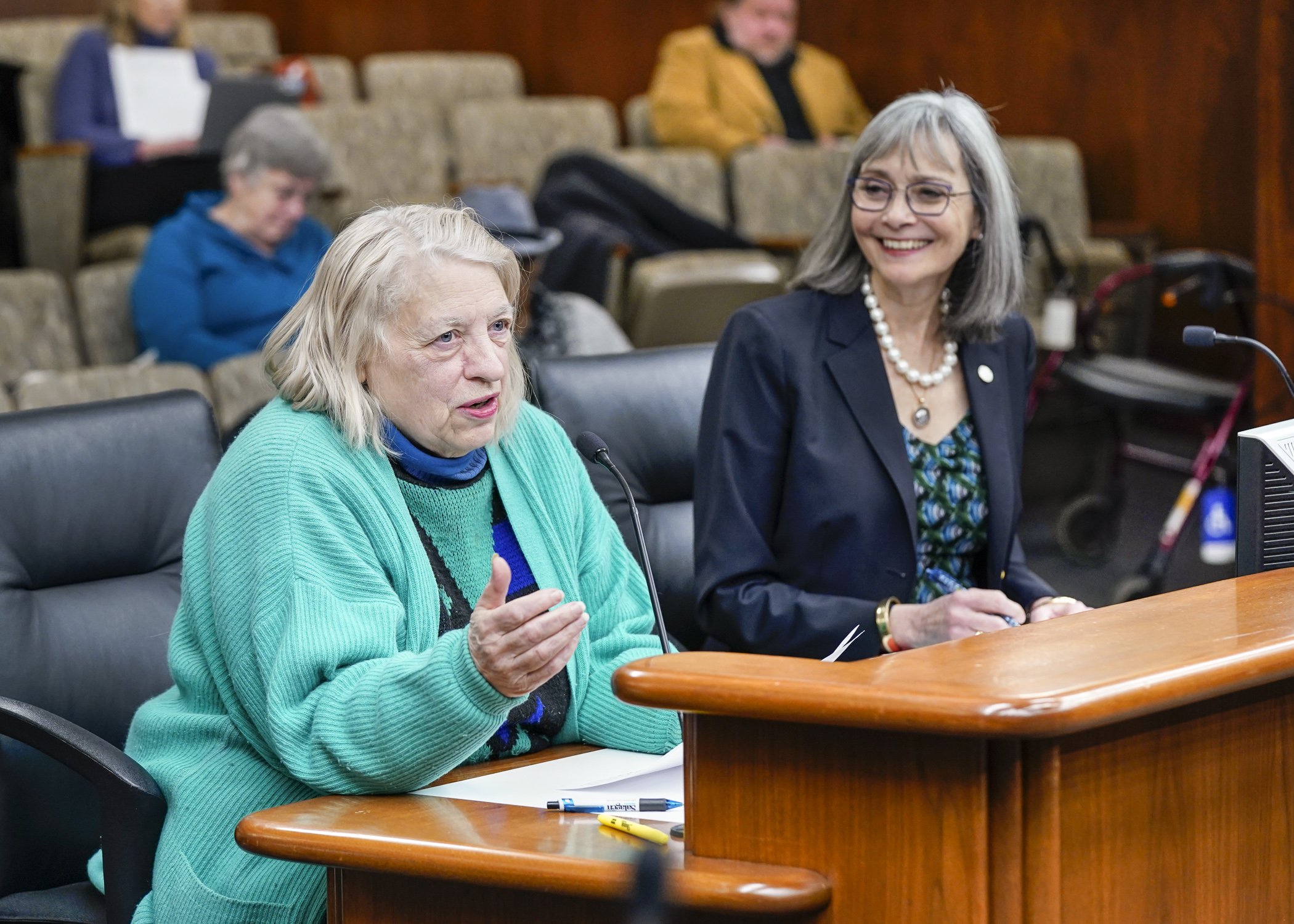Facing wave of aging Minnesotans, lawmakers consider creating task force to tackle issue

Estimates by the state demographer show that Minnesota had fewer than 600,000 residents aged 65 or greater in 2000 and will have more than 1 million in 2023 — roughly one in six residents. That demographic is expected to increase to 1.25 million in 2030.
What is needed to keep them thriving in the Land of 10,000 Lakes? Rep. Ginny Klevorn (DFL-Plymouth) has an idea to help find out.
She sponsors HF979 to establish a Legislative Task Force on Aging. It was held over Tuesday by the House State and Local Government Finance and Policy Committee for possible omnibus bill inclusion.
“Minnesota has a reputation for being forward-thinking in relation to caring for all its citizens. Currently, older adults are a side note. But the swelling population demands focused attention and planning,” wrote Mary Jo Schifsky, who serves on the Board of Aging.
Per the bill, the eight-member task force would:
- review and develop state resources for an aging demographic;
- identify and prioritize necessary support for an aging population through statewide and local endeavors for people to remain in their communities; and
-
ensure all aging-related state policies are inclusive of race, gender, ethnicity, culture,
sexual orientation, abilities, and other characteristics that reflect the full population of the state.
Kris Sundberg, executive director and a founding member of Elder Voice Advocates and Elder Care IQ is fully behind the bill.
She wrote, “Our current, fragmented approach has evolved over the years to address one set of issues at a time, rather than by an all-inclusive plan. This has resulted in the present challenges for elders to access affordable housing and health care, transportation, trained work force, caregiver support, state and local support services, and quality care in long-term care residences.”
A report would be due the Legislature by Jan. 15, 2025, and the task force would expire at the end of that month.
A fiscal note shows a $252,000 cost in the 2024-25 biennium.
Rep. Jon Koznick (R-Lakeville) wonders if the Board of Aging could do what the bill seeks, rather than continuing to grow government. “Maybe it’s an opportunity to refine and refocus what we’re doing there,” he said.
Klevorn said the volunteer 25-member board has been unable to have the staff and resources to get all this information.
“The idea of this task force is to have a real concerted, integrated and coordinated effort. When you think about the millions of dollars, maybe even billions of dollars, we spend on our aging communities the cost to do this task force and to make sure that we’re spending those monies where they’re needed is pertinent.”
Related Articles
Search Session Daily
Advanced Search OptionsPriority Dailies
Speaker Emerita Melissa Hortman, husband killed in attack
By HPIS Staff House Speaker Emerita Melissa Hortman (DFL-Brooklyn Park) and her husband, Mark, were fatally shot in their home early Saturday morning.
Gov. Tim Walz announced the news dur...
House Speaker Emerita Melissa Hortman (DFL-Brooklyn Park) and her husband, Mark, were fatally shot in their home early Saturday morning.
Gov. Tim Walz announced the news dur...
Lawmakers deliver budget bills to governor's desk in one-day special session
By Mike Cook About that talk of needing all 21 hours left in a legislative day to complete a special session?
House members were more than up to the challenge Monday. Beginning at 10 a.m...
About that talk of needing all 21 hours left in a legislative day to complete a special session?
House members were more than up to the challenge Monday. Beginning at 10 a.m...